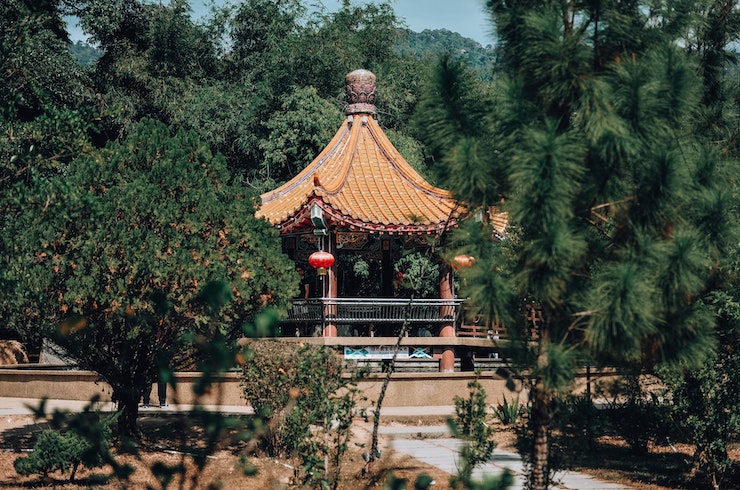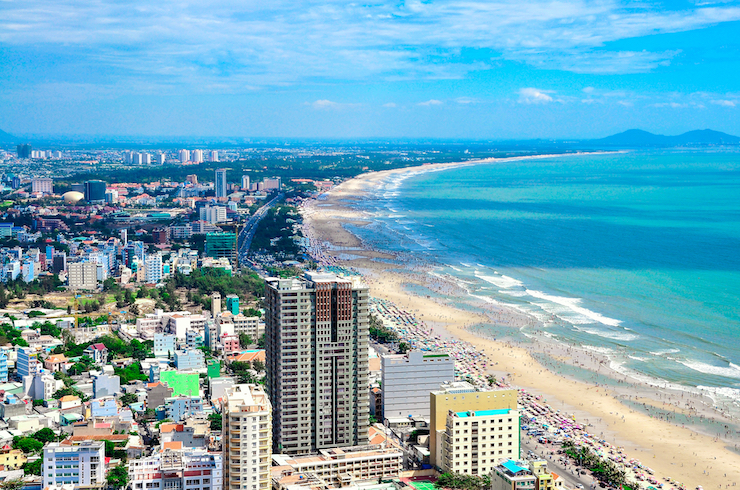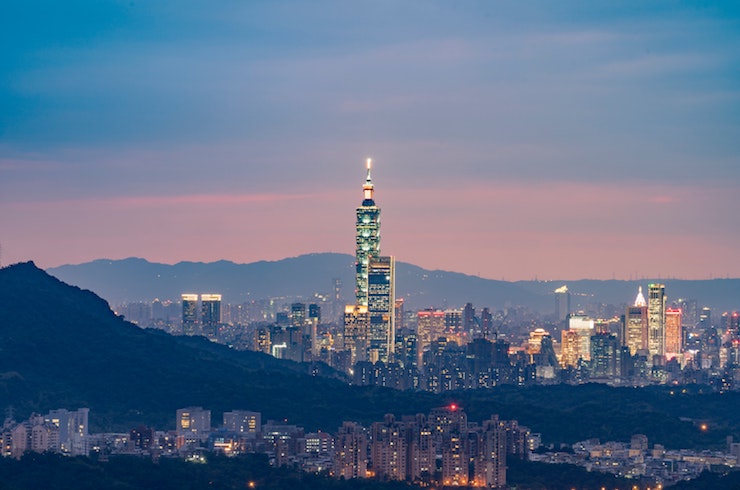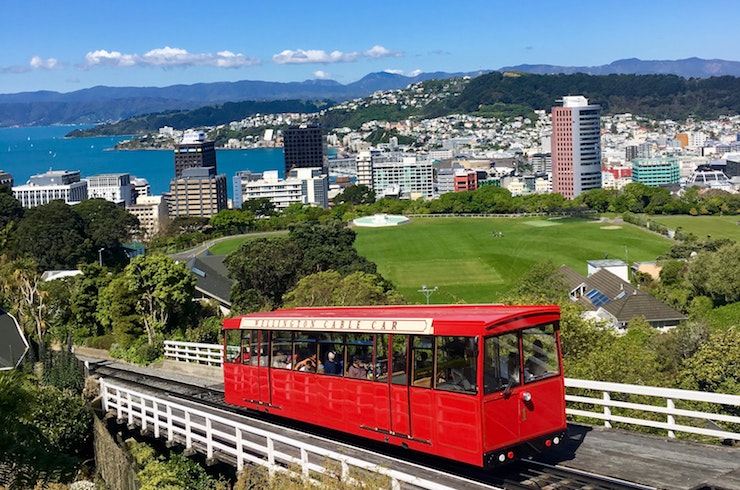
Malaysia is culturally similar to Singapore, but with a significantly lower cost of living. On top of that, it also has an attractive retirement visa programme. But among all the options in the country, Penang Island, located in the north of the peninsula, stands out for its greater demographical similarity and island lifestyle.
- Cost of living: According to the Malaysian Department of Statistics, in 2018, the mean and median salaries for those living in urban areas stood at RM3,274 (SGD1,090) and RM2,415 (SGD800), respectively. Further, according to the 2018 Bank Negara Malaysia (BNM) policy report, “The Living Wage: Beyond Making Ends Meet”, a single adult in Kuala Lumpur needs an estimated RM2,700 (SGD900) a month to make a living wage, while a couple without children needs at least RM4,500 (SGD1,500). While living expenses data was for Kuala Lumpur, those salary and expenditure figures should provide a reasonable estimation of the amount it takes to live in Penang Island.
- Retiree immigration policy (where applicable): The Malaysia My Second Home Programme (MM2H) allows foreigners to easily apply for a ten-year visa. The requirements are mainly financial—minimum monthly income of RM10,000 (SGD3,310) and to show liquid assets of at least MYR350,000 (SGD117,000), of which MYR150,000 (SGD50,000) must be placed in a fixed deposit account in Malaysia.
- Weather: Singaporeans will find essentially no difference in the weather in Penang Island compared to what they are already used to. The bright and sunny weather and proximity to the beach makes it easy to cultivate an active lifestyle.
- Ease of transportation: Unlike Singapore or the capital of Malaysia, Kuala Lumpur, Penang Island still lacks credible public transportation infrastructure. However, ride-sharing services such as Grab are ubiquitous, and the cost is also far lower compared to Singapore.
- Residential property prices: According to the Malaysian government’s National Property Information Centre, the latest mean and median prices for property on Penang Island stood at RM378,983 (SGD125,830) and RM290,000 (SGD96,285), respectively. While mean and median condo prices stood at RM506,717 (SGD168,362) and RM460,000 (SGD152,835).
Possible areas of concern: While Penang Island is generally a safe place—much safer than Kuala Lumpur, according to official Malaysian crime statistics—Singapore is still safer. Thus, increased vigilance is recommended.
Why is it ideal for those looking to live an active lifestyle?
Penang is an island, which means beaches and the ocean. Retirees who enjoy swimming and other aquatic activities like kayaking will find these easy and accessible. Away from the beaches, Penang also has beautiful parks for serene walks and hiking trails for those looking for more of a challenge. And for those who prefer sports on land, numerous golf courses and sports clubs will have you staying active throughout your retirement whether you prefer playing solo or joining a group.

Why is it popular for retirement?
This coastal town has become a haven for expat retirees for a few reasons: beachside location, low cost of living, and great weather. Located about 125km south east of Ho Chi Minh City, it sits right next to the South China sea.
- Cost of living: According to VietnamWorks, the country’s largest online recruitment site, the median monthly salary in Ho Chi Minh City (the highest in the country) stood at VND18.9 million (SGD1,100) in 2018. The 75th percentile was VND48.8 million (SGD2,850). Using those numbers as a cost of living proxy, if your monthly retirement income falls between those ranges, you will likely be able to live a comfortable lifestyle in any city in the country, including Vung Tau.
- Weather: Vung Tau offers fresh ocean air on top of the tropical weather most Singaporeans are already used to (the rainy season is between May and October). Combined with its seaside location, this makes it one of the best—but most overlooked—cities for active retirees.
- Residential property price: According to global real estate services firm JLL, average sales price for apartments in Ho Chi Minh City was USD187 (SGD252) per square foot. This is by far the most expensive in the country; for instance, the average price in Hanoi was USD132 (SGD178) per square foot. Property prices in Vung Tau are significantly lower than Hanoi with a median residential sales price of VND3,154,033,000 (SGD182,600).
Potential areas of concern: Communication difficulties given the lack of a common language and no public transportation may cause some issues with convenience.
Why is it ideal for those looking to live an active lifestyle?
Again, Vung Tau’s beachside location means things like swimming in the ocean and kayaking can be daily activities if so desired. For those who want to go a little further afield, head to the marina and pick up a sailboat or fishing boat and enjoy the local waters. If you’d prefer to stay on land, it also has renowned hiking trails—you can hike both its Small Mountain and Big Mountain—plus there are several golf courses for those who prefer the greens.

Why is it popular for retirement?
The capital of Taiwan has seen a rise in its popularity as a retirement destination, particularly for other citizens of Asia. A few reasons for this: it has lush greenery (Taipei is famous for its hiking trails), demographical and cultural similarities, as well as a first-world standard of living. On top of that, its food is great, and it is a convenient city to live in—a definite plus for those used to living in Singapore.
- Weather: Taipei has generally warm and temperate weather, with even the lowest temperature staying at a highly bearable 15 degrees. At its hottest, it averages just over 30 degrees—an average day in Singapore.
- Ease of transportation: While not as extensive as Singapore’s, Taipei’s public transportation system is also world class. The MRT and subway lines, when augmented by the bus network will get you almost anywhere in the city.
- Residential property prices: According to global real estate services firm Savills, the average cost of residential property in Taipei stands at USD900 (SGD1,211) per square foot.
Potential areas of concern: Singaporeans who are not proficient in Mandarin may find it difficult to communicate with the locals.
Why is it ideal for those looking to live an active lifestyle?
If you are the outdoorsy type who likes going for long walks or hikes in nature, Taipei is a great choice. Just a stone’s throw away from all the conveniences of city living lies world-renowned hiking trails. The island itself boasts nine national parks, with Yangmingshan National park being only a short bus ride from Taipei.

Why is it popular for retirement?
New Zealand is popular for retirees looking to escape most of the hustle and bustle of Asian city life. With its clean air, high standard of living, and low population density—a welcome change from Singapore—Singaporeans will find New Zealand refreshing. Wellington is the capital of the country, although not as large as Auckland, meaning the cost of living is lower (though the sights are no less beautiful).
- Cost of living: According to the New Zealand government, the median monthly wage for a New Zealander in 2019 was about NZD4,064 (SGD3,700). Since that figure also assumes most residents will still be able to have some left over, the amount needed for pure expenses will be lower. For a comfortable retirement income, something close to the median monthly wage should thus suffice.
- Weather: Wellington offers perfect weather for those wanting a change from Singapore’s hot climates, but don’t want to freeze either. Even in the coldest months, Wellington’s average lowest temperature is still a cool 9 degrees while the hottest months remain comfortably under 20 degrees.
- Retiree immigration policy (where applicable): There is a Parent Retirement Visa scheme available to people who have a child who is a resident or citizen of New Zealand.
- Residential property prices: According to the Real Estate Institute of New Zealand, the latest median housing prices in Wellington stood at NZD695,000 (SGD617,000).
Potential areas of concern: New Zealand’s location makes it somewhat prone to natural disasters such as earthquakes. However, statistically Wellington is very safe, with its last major disaster being an earthquake in 1855.
Why is it ideal for those looking to live an active lifestyle?
According to the 2018 World Air Quality Report, Wellington is the least-polluted capital city in the world. Wellington also lies by many beautiful beaches and bays, and things like swimming, kayaking and even surfing are easily accessible. Its scenery also means that it has a myriad of picturesque hiking and biking trails. The city also has an app which lists out all the walkable tourist destinations and outdoor spots in and around the city.
We hope this article gave you some ideas of how a happy, active, and comfortable retirement can look like. However, this will not happen by chance or accident. A successful retirement must be the culmination of deliberate actions taken toward hitting specific financial and healthy lifestyle milestones. At Standard Chartered, our trusted relationship managers will help you chart out these milestones and work out a plan for achieving them. So, whatever your retirement goals are, speak to one of our relationship managers today—we are here for you.
This article is brought to you by Standard Chartered Bank (Singapore) Limited. All information provided is for informational purposes only




